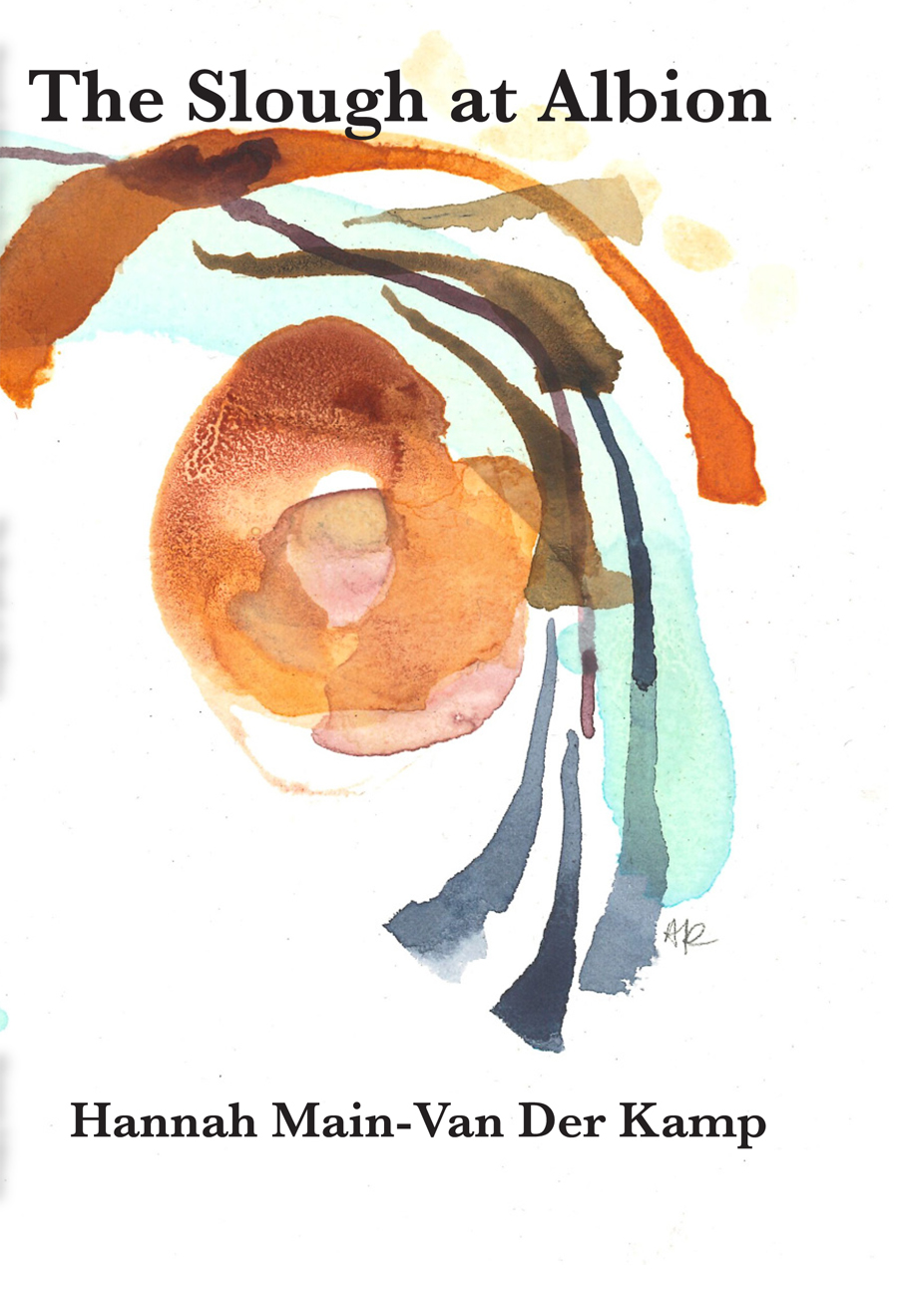Hannah Main-van Der Kamp

Joy and woe are woven fine in this account of life on Canada’s Northwest coast. The semi-rural setting with bears, birds, dogs and gardens is seemingly idyllic, pure as fabled Albion, but a slough runs through it. Extreme weather and crop failure, marital argue scripts, insomnia and land development are all part and parcel of a rich life beside a Slough. The slough is what makes the enviable setting real. Biblical resonances, the seasonal liturgical calendar plus insect pests are all in the mix. For winter relief there is a sojourn in a small Mexican town. Several long poems tell of silent retreats and meditation. Fishing as prayer, avian wardrobe choices, rotten chum salmon compost are invitations to get -your hands -in - good soil and adjust the binoculars for a stroll on a beach where runs a joy with silken twine.
Hannah Main’s love of the small, backyard birds (wrens, juncos) turns into evocative, beautifully human poetry and carries us to the magic found in loons and puffins where “something wants to go deeper…”
David Zieroth, publisher Alfred Gustav Press
The poetry of Hannah Main-van der Kamp is suffused with an intimate knowledge of natural life on the coast seen through the changing seasons. As attentive birder, she is alert to ‘the life of things’ around her, from the “skull design” of woodpeckers and geese “on shore patrol” to the “Battle of the Feeder Perches” among hummingbirds. As a gardener with an appreciation for climate change and the deleterious effects of logging, she records her observations of creatures in their threatened environment with precision, wit, and empathy. As a Christian, the profundity of her marvellous, meditative poems is only further deepened by their liturgical and scriptural echoes. ‘Tutor me,’ she asks, as she tutors us.
David Kent, The St. Thomas Poetry Series
Hannah Main-Van der Kamp’s The Slough at Albion unites both contemplation and activism by celebrating “old values,” earlier ways of being grounded in intimate relationship with Planet Earth. Her epigraph from Wendell Berry, “We have a duty to be old-fashioned,” suggests the human species urgently needs to return to ways of being that allow us to commune with nature, our fellow creatures and each other. As she puts it in “The Sentience of Stones,” “Get up, get organized//against the money changers, the sellers and the buyers/ who’d sell even a prayer house to make a profit/ who cannot see the trees for the merchandise.”
Susan McCaslin, author of Consider (Aeolus House Press, 2023)
ISBN 978-1-77171-540-9
Poetry
140 pages
6 x 9
$23.95
Now available
customers
customers
customers